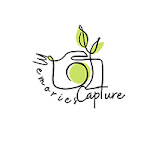What is photography?
Photography
is the art and practice of capturing and recording images through the use of a
camera. It involves the process of creating images by recording light or other
electromagnetic radiation, either electronically by means of an image sensor,
or chemically by means of a light-sensitive material such as photographic film.
The word "photography" is derived from the Greek words
"photos," meaning light, and "graph," meaning drawing or
writing.
Photography
can be both a creative and a technical endeavor. Photographers use various
techniques, equipment, and settings to achieve their desired results. The
primary tool in photography is the camera, which can range from simple
point-and-shoot cameras to sophisticated digital or film-based single-lens
reflex (SLR) cameras.
Key
elements in photography include composition, lighting, exposure, and
post-processing. Composition refers to how elements are arranged within the
frame, while lighting is crucial for setting the mood and highlighting specific
elements in the image. Exposure involves controlling the amount of light that
reaches the camera sensor or film to achieve the desired brightness and detail.
Post-processing, done either in a darkroom for film photography or using
digital editing software for digital photography, allows photographers to
enhance or modify their images after they are captured.
Photography
has evolved significantly throughout history, from the early days of
black-and-white film and chemical processes to the digital era, where images
are captured electronically and can be instantly reviewed and edited. It has
become an integral part of visual communication, journalism, art, science, and
everyday life. Photographs can convey emotions, tell stories, document events,
and provide a powerful means of expression.
How To Start Photography?
Starting in photography can be an exciting and rewarding journey. Here are some steps to help you get started:
Get a Camera:
You
don't need the most expensive camera to start. Many people begin with a
smartphone, which can take excellent photos. If you're interested in more
advanced features, consider a digital camera with manual settings.
Learn the Basics:
Understand
the basic principles of photography, including composition, lighting, exposure,
and focus. There are numerous online resources, tutorials, and books that can
help you grasp these fundamentals.
Practice Regularly:
The
best way to improve is through practice. Take your camera with you wherever you
go and capture a variety of subjects in different lighting conditions.
Experiment with Settings:
Learn
how to use your camera's manual settings. Experiment with aperture, shutter
speed, and ISO to understand how they affect your photos. This knowledge gives
you more creative control over your images.
Study Other Photographers:
Look
at the work of established photographers. Analyze their composition, lighting
choices, and storytelling techniques. This can provide inspiration and insights
into different styles.
Join Photography Communities:
Connect
with other photographers online or in your local community. Share your work,
ask for feedback, and learn from others. Communities can be a valuable source
of support and inspiration.
Take a Course:
Consider
enrolling in a photography course, either online or at a local institution.
Courses can provide structured learning, and you'll benefit from the guidance
of experienced instructors.
Understand Editing:
Learn
basic photo editing skills. Software like Adobe Lightroom or Photoshop can
enhance your images and correct any imperfections. There are also free
alternatives available.
Build a Portfolio:
As
you develop your skills, start building a portfolio showcasing your best work.
A portfolio is essential if you plan to pursue photography as a hobby or a
potential career.
Seek Feedback:
Don't
be afraid to ask for constructive feedback on your work. It can help you
identify areas for improvement and gain valuable insights from others.
Experiment with Different Genres:
Try
out various genres of photography, such as portrait, landscape, macro, or
street photography. Exploring different styles will help you discover what you
enjoy most.
Stay Inspired:
Keep
up with the work of contemporary photographers, follow photography blogs, and
immerse yourself in the world of visual storytelling. Staying inspired will
fuel your passion for photography.
Remember, photography is a journey, and your skills will develop over time. Embrace the learning process, stay curious, and enjoy the creative possibilities that photography offers.

